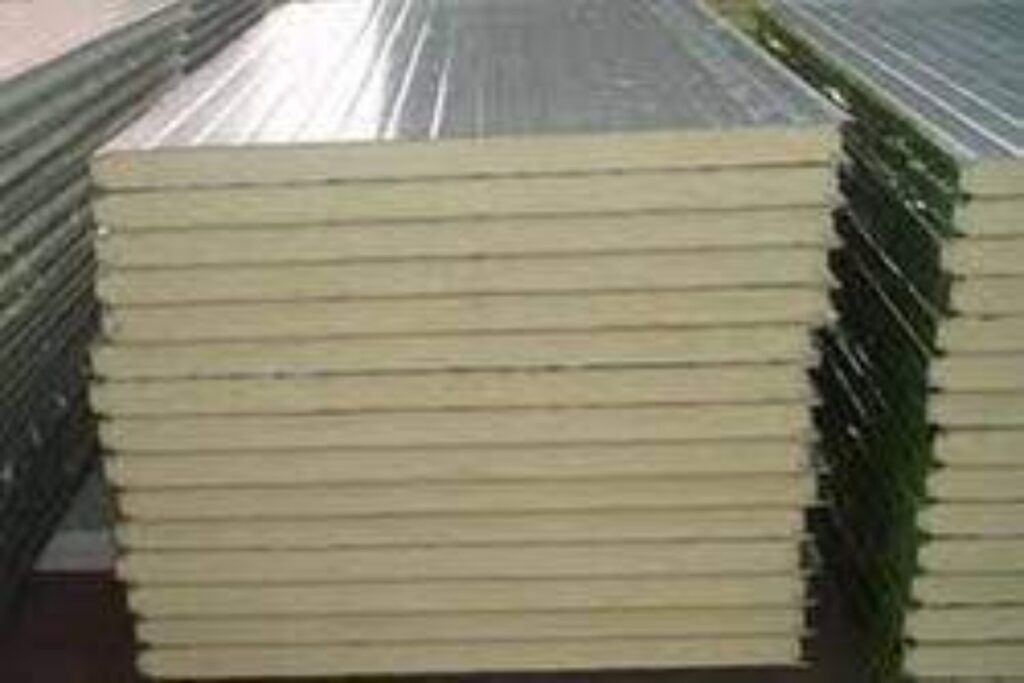Factoring in the thickness of a PUF insulated panel is important. If you are interested in buying PUF insulated solutions for tropical climates or any other climate, then you have to check their thickness before making a buying decision. But why does the thickness of PUF insulated durable solutions matter? And what factors influence a PUF panel’s thickness? Read on to find the answer.
The importance of the thickness of PUF insulated panels
A PUF core’s insulation capacity is determined by its thickness. Thicker panels bring more thermal insulation, thereby minimizing energy consumption for cooling or heating. You must consider a project’s desired energy efficiency and overall climate when selecting a panel’s thickness. Here are some reasons why your panel thickness is important.
- Maximizing structural strength
Getting a thicker PUF panel means you get additional durability. A thick panel can also handle environmental stress way better than their thinner counterparts.
- Improving energy efficiency
Thick PUF panels can provide improved thermal insulation, thereby minimizing cooling and heating costs.
- Reducing noise
If you have thicker PUF panels, you will get improved soundproofing, making them the best solution for noisy industrial settings or urban ecosystems.
- Enhancing moisture resistance
When you install a PUF panel in its ideal thickness, you ensure minimal moisture ingress. That way, you also minimize the risk of structural damage and mold.
The top factors that influence a panel’s thickness
When you have to find the right PUF panel thickness, check out several factors that can influence the suitability and performance of a panel. In this section, we give you many factors that may have an impact on the appropriate panel thickness for different scenarios.
- Prioritizing thermal resistance
Also referred to as R-value, the thermal resistance of PUF panels gauges their capability to withstand heat flow. The flow of heat is directly affected by a panel’s thickness. Thicker panels come with high R-values, which means they provide good insulation capabilities. A case in point: maximizing a roof panel thickness can bring down the cooling and heating costs, thereby achieving energy efficiency.
- Ensuring load-bearing capacity
PUF panels are an important structural element of a structure, and panel thickness plays an integral role in improving their load-bearing ability. Structural demands, such as the requirement to have roofs that support snow or withstand any wind forces, will greatly influence the required thickness of a panel. Regions that receive heavy snowfall may require a higher roof panel thickness to support the additional weight brought by snow. Likewise, walls that are present in windy areas may require thicker panels to improve safety and structural integrity.
- Taking care of environmental conditions
Humidity, UV radiation exposure, and temperature fluctuations can affect the panel’s longevity and performance. You will need a thicker panel where the climate is sunny and hot for the most part of the year. That way, you will avoid thermal bridging and make sure the interiors of the building remain cool. However, in a cold room application, you have to opt for an ideal cold room panel thickness that facilitates the structure’s maintenance without increasing energy expenditure.
Finding PUF insulated durable solutions at Shilpkar
Whether you want to find an ideal cold room panel thickness or determine the correct wall panel thickness in millimeters, experts at Shilpkar will help you. Being in the business since 1997, we have vast experience and deep capabilities to help you find the best PUF insulated panels as per your budget and project requirements.



